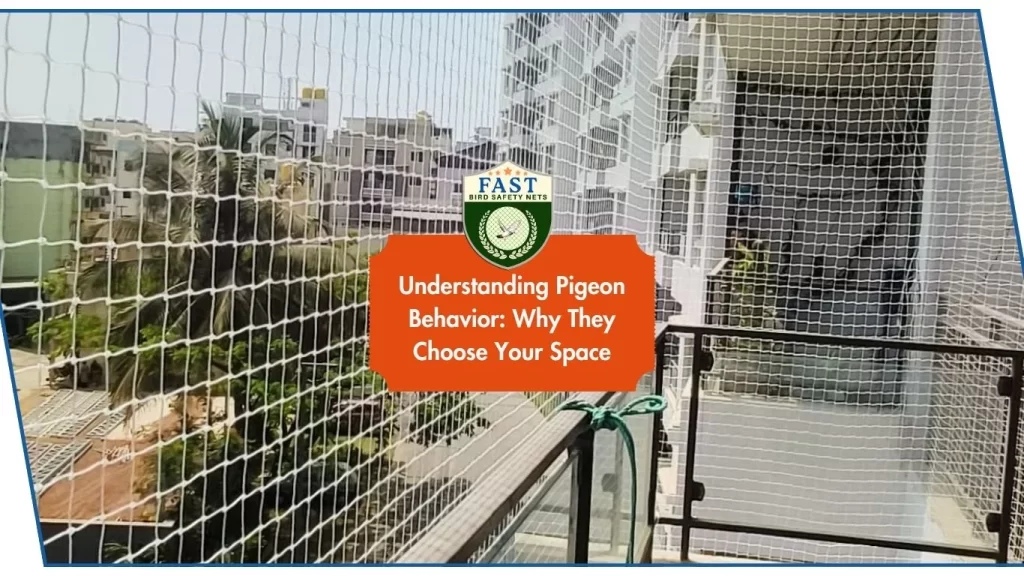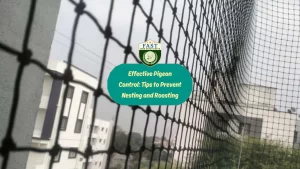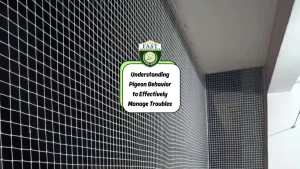Pigeons are a common sight in urban environments, often flocking to various spaces, including balconies, rooftops, and ledges. Understanding Pigeon Behavior such as why pigeons choose certain areas can help property owners effectively manage and deter them.

1. Shelter and Safety: Pigeons are naturally drawn to spaces that provide shelter and safety from predators and harsh weather conditions. Balconies with ledges or overhangs offer ideal roosting spots for pigeons, providing protection from rain, wind, and potential threats.
2. Food Availability: Food availability is another key factor that attracts pigeons to specific spaces. Areas with abundant food sources, such as open trash bins, outdoor dining areas, or bird feeders, are likely to attract pigeons looking for an easy meal.
3. Water Sources: Pigeons require access to water for drinking and bathing. Spaces near water sources, such as ponds, fountains, or leaking pipes, are attractive to pigeons seeking hydration and cleanliness.
4. Nesting Opportunities: Pigeons are prolific breeders and seek out locations suitable for nesting and raising their young. Spaces with flat surfaces, such as rooftops, window ledges, or air conditioning units, provide ideal nesting sites for pigeons to build their nests and rear their offspring.
5. Lack of Disturbance: Pigeons prefer quiet and undisturbed spaces for roosting and nesting. Areas with minimal human activity or noise disturbances are more likely to attract pigeons seeking peace and solitude.
Managing Pigeon Presence:
To deter pigeons from choosing your space, consider the following strategies:
- Remove Food Sources: Minimize food availability by securely covering trash bins, cleaning up spilled food, and avoiding leaving pet food outdoors.
- Block Access Points: Seal off entry points to prevent pigeons from accessing roosting and nesting sites, such as gaps in eaves, vents, or windows.
- Install Deterrents: Implement deterrent measures, such as bird spikes, netting, or repellent gels, to discourage pigeons from landing or roosting on surfaces.
- Maintain Cleanliness: Keep outdoor areas clean and free of debris, which can attract pigeons and provide nesting materials.
- Modify Habitat: Alter the environment to make it less hospitable to pigeons, such as installing sloped surfaces or using visual deterrents like reflective objects or predator decoys.
By understanding the reasons behind pigeon behavior and implementing appropriate management strategies, property owners can effectively deter pigeons from choosing their space while maintaining a harmonious urban environment.






